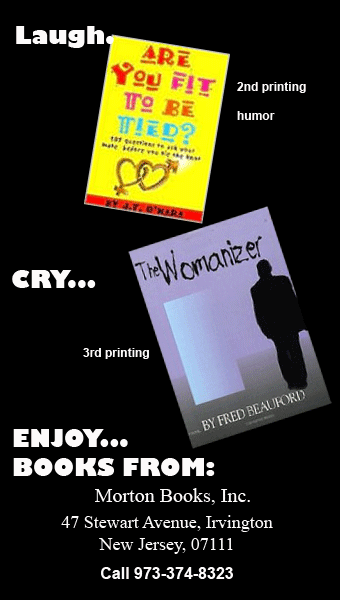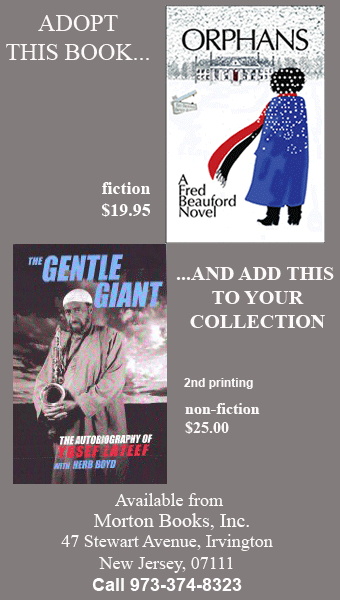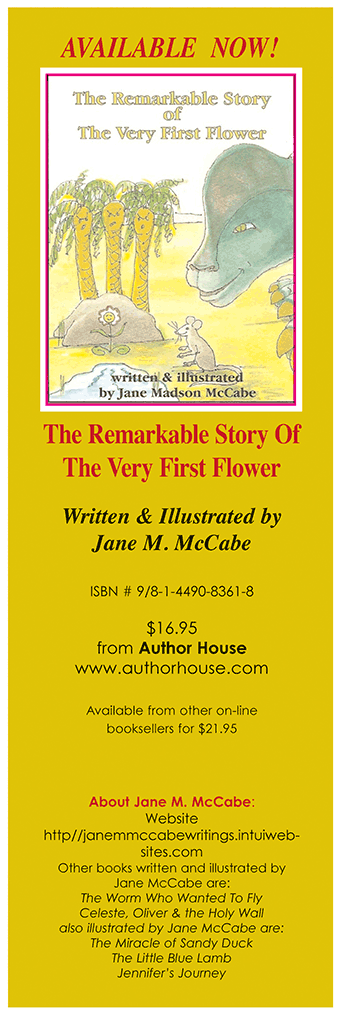REVIEWING
Haki Madhubuti:
A Tradition of Liberation Narratives:New and Collected Poems
1966-2009
Third World Press | 2011 | 320 pages | $26.96
Reviewed by Brenda M. Greene
if poetry is to have meaning
it must mean something
more than metaphor and simile
more than tree-talk and looking for gigs
more than competition in unrhymed free verse
serious to the bone of incomprehension
surely to land the poet
a guggenheim or macarthur genius grant.
Woven through Haki Madhubuti’s Liberation Narratives , is the theme of the poet as artist. The role of the poet reflects a long term debate in the literary canon, a debate that was central to the Black Arts Movement where Madhubuti emerged in the 1960s as the progressive and revolutionary poet Don L. Lee.
John Oliver Killens, founder of the first Black Writers Conference hosted by the American Society of African Culture (AMSAC) in 1959, focused on this debate at every Black Writers Conference he convened. Panels always addressed questions on the responsibility of the artist and whether Black artists had the luxury of producing art for art’s sake, or were they required to produce art that had a purpose. The excerpt above clearly illustrates Madhubuti’s stance on this debate, a stance that has been a defining principle of his life’s work.
Madhubuti’s voluminous litany of “liberation narratives” in Liberation Narratives: New and Collected Poems 1966-2009, speaks to his deep belief in the responsibility of the poet as artist and more specifically to his position that as an “Afrikan American” in this country, he has a responsibility to create meaningful and conscious art. Hence, as a poet he is “serious to the bone of incomprehension.”
He views the poet as the voice of people, the storyteller, the interpreter and interrogator of the images, sound bytes and propaganda that permeate our culture, environment and lives. His poetry asks us to be more humane and implores us to love and cherish our mates, children and family. He interrogates and critiques local and global issues and raises political and social awareness of the conditions faced by those who are oppressed and the victims of miseducation, greed, corruption, and social injustice in this country.
Although I had listened to, and read, the poetry of Haki Madhubuti in the late 60s, and had followed his journey as a “revolutionary writer committed to the principles of cultural nationalism,” I did not have the opportunity to meet him until the 1980s when he was a featured speaker at the National Conference for Teachers of English. Upon meeting him, I thought to myself, was this tall, demure man with a humble spirit and presence, the same Don L. Lee who I had listened to, who had written Think Black (1966), Black Pride (1968), Don’t Cry, Scream (1969), and We Walk the Way of the New World (1970)?.” I had expected to meet a man who embodied the essence of radical and revolutionary politics and activism, and instead I met a man who embodied a quiet, determined strength and spirit. Liberation Narratives is symbolic of the totality and complexity of the man I met, the passionate poet, activist, educator, who on his journey through the cycles of life, remains committed to both the principles of cultural nationalism and to living the life represented in the 91 life poems published in his Book of Life (1973).
In Book of Life, Madhubuti reflects on the importance of examining all that surrounds you.
to seek all the answers of life
into yourself is to misunderstand life.
we are only a minute portion of all
that makes up life and our relationship
to other forms of life gives meaning to our life.
we are all in the cycle of return and give.
understand yourself first but also go
outside of yourself so as to understand the cycle of life.
seek answers of the world in the world
while understanding that the world
is part of you.
Madhubuti has accomplished this in Liberation Narratives. His narratives critically examine relationships, people and issues from multiple perspectives. In the opening section of the book, titled “Liberation Narratives,” in the poem,“The Last First,” Madhubuti begins with reflections on President Barack Hussein Obama. He notes that President Obama is not the first heavyweight champion, mathematician, physicist, trumpet player, bank president, state legislator, father or husband; instead, he defies all of these categories; and is, in fact, the “last first.” As such, he has a challenge to bring all he has experienced: as community organizer, as political speaker, as humanitarian, as environmentalist, to the task of the presidency and to expand the “can” in “we.” He has indeed a formidable task.
Madhubuti continues in this section with a tribute to Studs Terkel, a man who has “. . . always understood the dominions of words, money, privilege and organic liars,” a man who “. . . among the uncomfortable few” questioned influence and sovereignty. He also pays tribute to Poet Laureate, Gwendolyn Brooks, “a unique wordgiver.” This praise, however, is not given to Robert Mugabe, President of Zimbabwe. In “Losing Honor,” we witness Madhubuti’s sense of a profound disappointment in this African leader, whose addiction to, and abuse of power have resulted in the “slow killing of a nation.”
Madhubuti’s scathing analysis of the reign of Mugabe addresses the weak and distorted justifications which Mugabe used to remain in power and which have impacted a generation of children and grandchildren who “are disenfranchised and reduced to the bones of Zimbabwe, too hungry to dream or study, too fearful to speak or cry, to angry to forget or forgive. . .”
“Losing Honor” is followed by a series of poems on greed, art, young girls and
the sex trade, corruption. These opening poems in Liberation Narratives position Madhubuti as a man who is as much concerned with the larger world as he is with the lives of Black people in this country.
Liberation Narratives continues by taking the reader on a journey which traces the evolution of Madhubuti’s work from radically, progressive poems focused on cultural nationalism, to poems focused on family, love, fathers and sons and institution building. His use of Black English vernacular, slang and lower case letters is a deliberate strategy to appropriate the language of the academy and to write in a language that is accessible and that speaks to the heart and life of the community. His poetry is alive, rhythmic and replete with the poetic elements of alliteration, oonomatopoeia and repetition. He writes,
To be touched by living poetry can only make us better people” in “Poetry” from Earthquakes and Sunrise Missions (1984).
In “Don’t Cry Scream” we see his lament on the life of Billie Holiday and his use of oonomatopoeia in the line beginning with scream. The use of the capital “S,” a departure from his traditional use of no capital letters, points to the intensity of his grief for what happened to Billie.
i cried
for billie holiday,
the blues, we ain’t blue
the blues exhibited illusions of manhood.
destroyed by you. Ascension into:
scream-eeeeeeeeeeeeee-i ng sing
SCREAM-EEEeeeeeeeeeee-ing loud &
SCREAM-EEEEEEEEEEE EEE-ing long with
feeling
His use of repetition and his critique of a political system that exploits its people are clearly illustrated in “Killing Memory”, a poem for Nelson and Winnie Mandela, Killing Memory, Seeking Ancestors, (1987) Madhubuti asks,
who owns the earth?
most certainly not the people,
nor the hands that work the waterways,
nor the backs bending in the sun,
nor the bonded fingers soldering transistors,
nor the legs walking the massive fields,
nor the knees glued to pews of storefront or granite churches
nor the eyes blinded by computer terminals.
nor the bloated bellies on toothpick legs
all victims of decisions
made at the washington monument and lenin’s tomb
by aged actors viewing
red dawn and the return of rambo part IX.
At the center of Madhubuti’s poems is his love for Black people and his commitment to celebrating those men and women who have dedicated their lives to correcting the “wrongs” and finding solutions to addressing the many inequities in our society. His focus on the need to protect and care for our children is illustrated in “Too Many of Our Young are Dying” in Groundwork (1996).
Our children, in the millions
Are dropping from the trees of life too soon,
Their innocent hearts and bodies
Are forced to navigate within modern madness
In the basements of a crippled metropolis,
A disintegrating culture too soon.
Are we not all earth & lakes & sun?
And his insight and commitment to love and marriage are portrayed in “Contemplating
Full Orchards” HeartLove: Wedding and Love Poems (1998).
in fresh marriages, you are exposed
like new seeds in earth,
like delinquent gossip from children
like well water to the earth’s organism
define your memories gracefully.
“Fathers and Sons: The Healing Call” in Tough Notes: A Healing Call for Creating Exceptional Black Men (2002), a book of prose and poetry, epitomizes the critical situation facing Black males in the United States and offers a plan for how Black men can address this situation in their families, communities and nations. Madhubuti calls out to fathers.
this is our call
sponsor our sons, fill the emptiness in their questions
this is our theology: defeat the devil’s plans
answer the s.o.s, save our sons with f.o.c. fathers on call,
we are sacred answers for the deserted hearts of
boys becoming men.
Writers often say that they write to answer a question. In the preface to Liberation Memories, Madhubuti writes, “I am here because of poetry. . . . I am here because of a patched-quilt of voices that directed my younger life as I searched for all kinds of answers.” Madhubuti has dedicated his life’s quest to a philosophy that is informed by the principles of liberation and the use of poetic language to find the answers to life’s questions. He has been called by literary critic Darwin Turner, an “artistic, prophetic educator.” Liberation Narratives is a testament to that title.
A pivotal figure in the Black literary tradition whose work spanned the Civil Rights and Black Arts Movements, Haki Madhubuti is a prolific poet, essayist, editor, activist, publisher and institution builder. He has over 28 books of poetry and non-fiction, some of which are under his former name, Don L. Lee, and he has founded and developed several independent Black institutions including Third World Press in 1967 and five independent schools.




